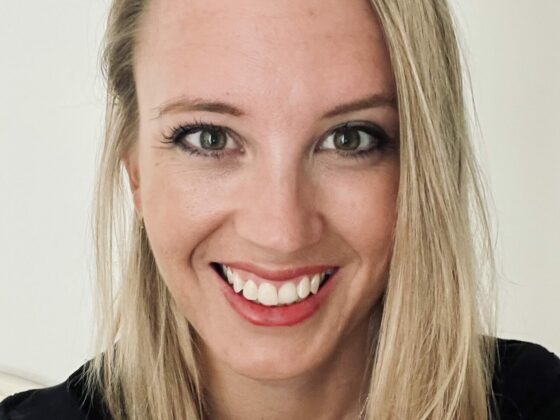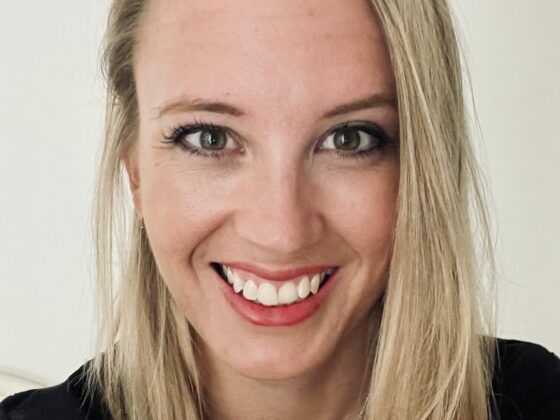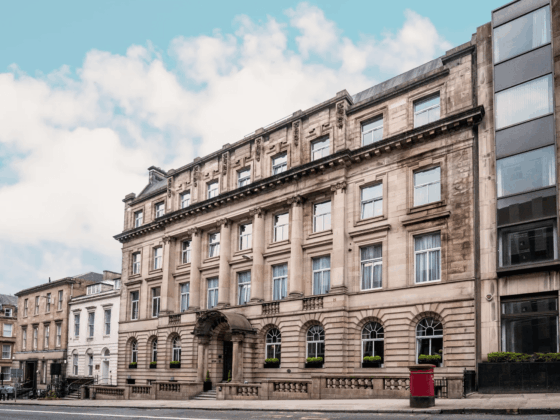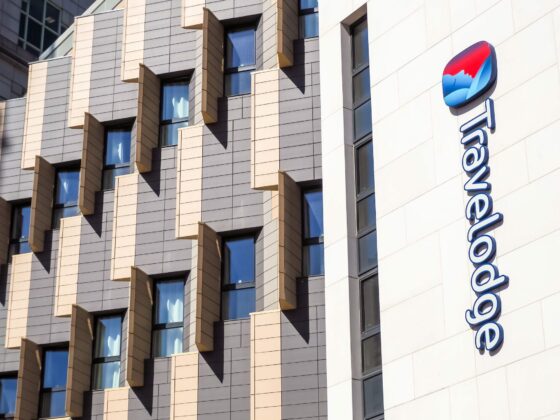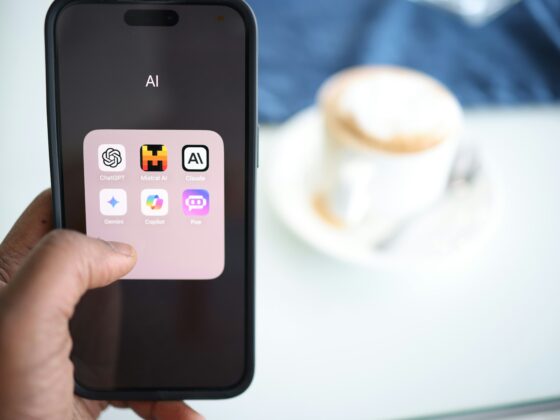Josiah:
I’m really excited to talk with you, Emily. I’ve enjoyed your work and what you are doing with hertelier on a daily basis. It’s very inspiring. I always love people to kind of meet the people behind the business, and just to give a little bit of context, if you could tell us a little bit about your own career journey and then we’ll get into what you’re doing now with hertelier.
Emily:
Thanks for having me, Josiah. I have to say I’m a huge fan of Hospitality Daily. I love the podcast so much and learn so much from many of the people that you’ve interviewed. So it’s really a fan club here, a mutual fan club. And in terms of my background, I started out in the hotel business. I actually went to Cornell. I studied the hotel school there and, you know, originally was in operations, did a few stints there, but when I graduated I actually ended up working in public relations and I worked on different accounts tourism, hotels, restaurants, cruise lines and I just loved it. I mean, I have a passion for the business. Like you, I love hospitality and from there I went in-house with Loews Hotels and I was the head of PR and communications there for 10 years then my husband’s career actually took us to London and at that point, I kind of switched to the other side of the coin and became a journalist, still keeping my hand in the business, because I thought I wasn’t sure we were actually only meant to stay in London for two years and it’s been 12, which happens to a lot of ex-fats, but yeah. So I’ve been covering the luxury hotel sector for Questex for the last 12 years and I noticed about five years ago that more and more women were taking top jobs. And, of course, having gone to Cornell, I have many friends and colleagues that have stayed in the business and they’ve also been on a Cornell a few decades now and they’ve also risen the ranks in their careers and, of course, noting along the way what challenges they’ve faced and then what’s been different and how they’ve been able to achieve the path to leadership. So that really was very intriguing to me and I noticed that there was change afoot with the Castel Project which I think started about five years ago, tracking, researching, and providing training and opportunity for women in the US. Similarly, here in the UK, there’s been a movement of women getting into these top roles, so I thought this is a really interesting story. There are a lot of interesting stories here and I didn’t feel that they were really being told and I wanted to change that. I love that.
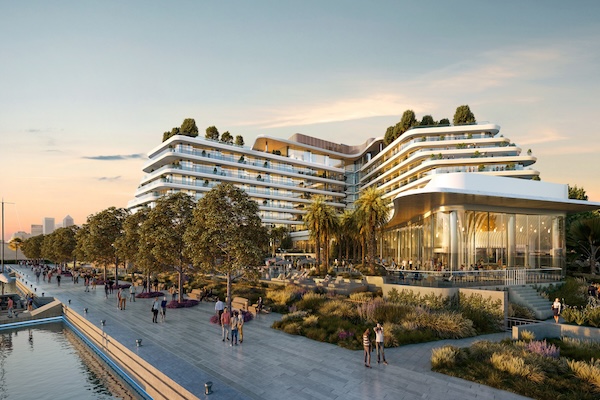
Josiah:
And, I think, working in-house at Loews, which is a phenomenal organization, and then as a journalist for Questex, which of course is one of the leading media brands with a huge presence in hospitality. We’ve done some conversations with the Questex team we can link to in the show notes. But you have perspective, right, you have perspective and you can spot the trends. You can also spot the opportunity, as you said. Let’s fast forward a little bit. What led to you founding hertelier?
Emily:
Well, it was the pandemic and it was. For years I’ve been saying, oh, I should start a website, I should do this, I should do that, and then nothing really stuck. But then, when I noticed this change happening and that I felt that it wasn’t being covered in a way that was inspiring and engaging, I thought, if I’m ever going to do a website, this is my chance.
Josiah:
And, if you had to, I want to get down to the details of how you do this, but I guess, in terms of your purpose, your mission, how would you describe that as a high level with hertelier?
Emily:
I mean, we’re just like you, trying to inspire the people that are working in hospitality and really offer this representation. I mean, all the studies show that representation really matters, whether it’s whatever the diversity is. But until you can see someone in that role that you might have, like, you don’t have the idea that that could be me if you don’t see somebody doing it. And that’s why I feel it’s really important to report on this and to show women actually not just at the top levels, but also at all the levels along the way in the journey.
Josiah:
Yeah, and I’m very interested in how all of the stops along your career have led you and prepared you for this role that you have today. And I think PR is a really interesting one, right, because I think sometimes perceptions are all over the board there. But essentially at its core I think PR has like some roots in propaganda, like in a good sense, it’s changing hearts and minds and I’m curious how you kind of leverage that experience working at Loews and then as a journalist to design the specifics of how you set up hertelier. You said you wanted to have a website, but you know website can have many different shapes and forms. Were there any learnings that you had around affecting change from your experiences that you wanted to make sure that you launched your media brand, that it would drive change?
Emily:
That’s a really good question. I think all of it culminated into hertelier, in that I’ve always been really passionate about the news. I love to read and notice trends, as you said. I mean, that was really my role at Loews I launched a pets program, I launched a family program there, we had a massive good neighbor program and I think it’s just playing into the different trends that have happened in hospitality. I always kind of had that radar up and, yeah, I guess I just noticed this as something that was happening and I wanted, like you said, to amplify the stories of women. And it’s a passion of mine, not only because I’m a woman, but just because I’ve also learned along the way that diverse companies make better business sense, and so that also is an important message that needs to be shared.
Josiah:
I’m curious about the opportunity you see with digital storytelling, because you mentioned for quite some time wanting to launch a website, but you’re also very, very active on social media. Is there something happening in digital media that presented an especially interesting opportunity?
Emily:
Certainly with LinkedIn, there’s a lot of opportunity for people to share their personal story, to create personal brands, and it’s become a very engaging way, I think, for people to get news in a curated way. I think with AI which we’ve noticed, you know, has really grown in the last year and you and I had a quick chat about that before getting on here but it’s going to get even more interesting in terms of how do you find the news that you need that’s pertinent to you in your career, and I think that’s where hertelier and Hospitality Daily are really going to become very valuable for people because we are really drilling down into the different skills, stories and inspirational tales that really can impact people in their careers and their jobs every single day.
Josiah:
I think we have to come back to AI, because I am fascinated by this. But one of the things I like about LinkedIn is just the relational nature of it, right. So it’s not just the information, it’s the people behind it, and if you’re participating in the ecosystem, you get to learn along with others, and I really enjoy that. And one person I had the pleasure of speaking with a little while back is Shelly Brown, who does coaching and training and is a great voice in hospitality, and what she mentioned is the content on hertelier is just so vast but it’s really well curated. And you know, she and I are curious about how you think about the content curation, because you mentioned kind of getting into the specifics, being tactical, being valuable, but that does require a lot of editorial judgment and how do you think about that curation of the different elements?
Emily:
Yeah, I think. First and foremost, I think about women and what women are interested in, and what challenges women face in terms of working in a system that really was built by men. So it’s about where is the system not working for women and then what is the information that they need to either create change or to work better in the system that has the way it’s been built so that then eventually we can make change and go for equality. That’s really the overarching theme is what’s interesting to women. I think you and I know Shelly is a big fan we do a weekly roundup newsletter every Sunday and that really is a curated newsletter, not just of information on hertelier, but also just business media in general, and so I will pick stories that resonate with women, whether it’s birth control is it what’s happening in the US with women’s health rights and then also business news in terms of this year, there’s more female CEOs over 10% of the Fortune 500 are women now. That’s the first time in history and also there’s 33% of women are on the board of Fortune 500 companies. So these kinds of stories are inspirational, because this is the first time this is happening and it also is evidence that change is happening in the broader scope of business. I mean this year, what an incredible summer women have had. I mean the Barbie movie grossed over a billion already. It’s only been out two weeks. Taylor Swift, I mean that’s one that directly has impacted hospitality. All the trades have been writing stories about the Taylor Swift bump that hotels have been getting in every market that she’s had her tour. Her tour is meant to generate over five billion globally. I mean that’s incredible and it’s just like this is, I mean, even Beyonce. I mean and I think it was in Sweden and in the UK there was like a Beyonce bump. So it’s just like really an incredible time for women and how women are driving the economy.
Josiah:
Yeah, when you see it on so many levels right on a cultural level, on an economic level and increasingly on a business leadership level as well and so I definitely want to get into kind of the details of that, but let’s just talk a little bit more about your approach to hertelier so I think I want people to understand, gonna like, how much effort you put into this and it’s a lot. And I think one thing that I really appreciate is that makes that you referenced of inspiration and practical steps to take, because you need both. Right. If If you just had inspiration without the practical steps, then you wouldn’t really affect change, and if you had the practical steps without the inspiration, you might not be motivated. So it seems like you’re really focused on balancing those two elements, right.
Emily:
Yeah, I mean, I think that when you just and I think you even said this in your interview with Noreen that when you just covered CEOs that you really Almost get sometimes on having worked in PR, you know you get the corporate talking points and as you dig a bit deeper into the organization and that might even just be going one level beneath it could be speaking to GM’s, it could be speaking to regional directors of operations you get a bit of a more raw and interesting take on what it means to really run these businesses and you know dealing with, you know hundreds of thousands of employees day to day and then also being fiscally responsible because essentially it is a real estate business when you come down to it too. So, yeah, I think that the approach has been that we need to kind of hit all levels and mix, as you say, the practical elements and so that women can see well, okay, this is the next step, because I think that what misses sometimes is that if you’re just hearing from CEOs, you don’t necessarily understand what the path has going to be to get there, and so our our whole Concept and along. You know I should have mentioned also, I should have said this at the beginning. I do her tell you’re with my partner, Nancy Mendelsen, who I worked with at Loews, and she’s been a longtime friend and mentor to me and she writes a weekly column about her experience in life and in business advice column. So that’s one piece of it is advice and another piece of it is speaking to people that are working currently in the business. So it’s, it is like you said, it’s that balance of you know, practical steps, inspiration and then really trying to inspire women with specific stages of the journey, not just here’s a CEO.
Josiah:
How do you think about collaborations to this point of including different voices, whether it’s with Nancy or contributing columnists? I feel like you work with a lot of people in producing this. How do you think about who we should work with and how we work with them?
Emily:
Yeah, it’s interesting. When I first started during the pandemic, people obviously had more time on their hands and everyone was super available to be interviewed. That’s changed. Of course, travel, as we know, is rebounded tremendously and people are busier, so it’s been great to have people who are interested to contribute columns. I’ve worked with, I think, Rachel Vandenberg is someone you’ve interviewed. I’ve worked with a couple of contributors, various contributors. Recently Michelle Session and her partner, Anton just contributed an interview. So, yeah, it’s like you said, and I think what you’re doing with Hospitality Daily is, like you know, really embracing the community, giving everyone a chance to have a voice. I think, going back to our conversation about LinkedIn and social media, I think the hard part of that is that you and I we’re not in control, right. We’re really dependent on the LinkedIn algorithm and I’m still I think you’re doing a great job of figuring out. I see all the engagement that you’re getting and I’m so happy for you and Hospitality Daily because I think you’re just doing a terrific job of getting people to engage with your content and that. But it’s like you say, you’re still, you know, relying on LinkedIn and how that all works. So I think what’s great is doing both things and you know, using LinkedIn a bit, but also having your own site where people can go and use it as a resource. I’m actually one of the things I’m super excited about. It’s not out yet, but I had a professor from the University of Bournemouth here in the UK reach out to me so her tell you’re is going to be part of a textbook which I guess that shows that I’m dating myself there. But like I was like, oh wow, like we’re going to be part of a textbook, that’s really cool.
Josiah:
I think it’s really, I think to your point, though. It’s important to mix up the ways that you’re telling your story, regardless of you working inside a hospitality company or you’re doing something else. It’s important to mix that up because you’re totally right and it’s funny on. I love LinkedIn, but you’re totally right, it is totally like you need to be blessed by the algorithm gods and, honestly, like half the time I have no idea, kind of what the change is. The last couple of weeks it’s gotten some nice traction and people have gotten really engaged and stuff. But it seems like if you kind of almost produce the same stories, sometimes it works, sometimes it doesn’t. So if you’re only reliant on telling your story and trying to affect the kind of change you want to see in the world, you know, through one platform, that is like largely out of your control. It’s not as much as you could be limiting yourself, right? So it’s cool to see you know the collaborations with a textbook, or I guess this might actually be. A good question, though, is like you kind of think about what the future holds for her tell you’re obviously where this, in this environment where AI is quickly evolving, like the opportunities and capabilities of content creators. How are you thinking about that intersection of like? How do I build my community now so that we’re kind of resilient and can thrive in whatever the technological landscape is ahead of us?
Emily:
Yeah, I mean I think we’ve got a big challenge ahead of us, but you know, there’s still everyone’s still pressed for time and I think, as more and more content comes at people, it’s really going to come down to awareness, people knowing about her tell you’re and then also building that trust within the community. Like you know, her tell you’re is where you need to go if you want to be up to date on what’s happening with women in business and what’s happening with women in hospitality. So that’s what I’m hoping that people are getting out of it and that’s that’s my drive every day.
Josiah:
Totally. I think, just for some unsolicited feedback on what I’ve appreciated from you is that expert perspective, because I think sometimes people get lost in okay, yeah, whatever AI power technology could summarize this or create this amount of text. I’ve spent my whole career in marketing. It’s like, okay, yeah, that is true, but it feels like it elevates the importance of someone like yourself who has seen the industry from so many different perspectives and so, essentially, they’re trusting Emily’s curation around. This is a story that matters, and so I think, like both, receiving your newsletter is important in that sense, but also that’s why I appreciate us having this conversation, because I think the value of these conversations even though AI will probably eventually be able to simulate like an audio podcast or something this is the real deal, right, it’s you and I talking here and we’re able to kind of like process things in real-time, and I think that’s only going to become more important.
Emily:
Yeah, yeah, it’s fine. I just had a chat with Nancy yesterday about, like we need to get on audio, because I think that’s the way forward too in terms of, you know, like you said, having different formats that people can use, whether you know it fits into their lives in different ways. You know, sometimes you just want to scroll through something while you’re having a cup of coffee, sometimes you want to listen to something because you’re doing something else, but you know, like you, running a lean operation, it’s hard to do everything well, so it’s you know, we’ve really tried to be very mindful and take measured steps. Yeah, but I mean, I think you know I’m super optimistic about AI. Like, yes, as a creator, I think it’s, it’s scary, but on the other hand, there’s a lot of things that AI is doing that’s really helping me out. You know, and actually I’m working on a story interviewing people in hospitality about how they use AI and their day-to-day jobs, like what people are trying out from a lot of AI that you know, we could record something like this and give you the highlights to. You know, using ChatGPT, but then also having really hone down what are the right prompts that you could be asking so that you get back something good. I think the thing with AI is like it’s only as good as what you ask it. And I was listening to a training the other day actually, and the guy was talking about you know, when you sit, when you talk to the AI, you should be saying please and thank you, and I thought that was weird. And then I thought to myself actually he kind of is making a point that like, if you want to get something good out of it, it’s not about the please and thank you, because it’s a robot and it doesn’t know, but it’s about your mental state and what you may get out of it because you’re asking it in a way that you’re speaking to it almost like a human. So I don’t know I haven’t tried that part yet, but I did. It just make me pause and think oh, I wonder if there’s something to that.
Josiah:
Yeah well, it’s a fascinating space to watch. I guess my last question around hertelier would be what’s been the most meaningful part of this journey so far? A couple of years into it, I’m really excited about where you’re going, but what’s been most meaningful for you?
Emily:
Yeah, honestly, all of it’s been online, like what you’ve been doing, except this year We’ve started doing events, but even online, just meeting people like you and I are meeting right now. I’ve just really enjoyed. We’ve done it’s almost 500 interviews now, so I think of that like you know it’s and, like you said, it’s not just me, Nancy contributes and we’ve had other contributors. But the fact that, like, we’ve made at least 500 connections and actually in some of our stories are kind of a roundup where we would have talked to a few people, really interacting with people that are in hospitality, that are working hotels, learning about their challenges and accomplishments and celebrating the wins, I mean that’s what I love. We did do our first event this year in London and I’m planning two more, which I wish I had more details to share, but I’m hoping to do an event in New York in October and then we are planning to do another event in London in November around World Travel Market. So if any of your listeners are planning to come to London for that, yeah. But the event that we did in June at the Four Seasons in Ten Trinity Square, which overlooks London Bridge and the Tower of London, it was just so special because women and I think Noreen Ahmed said this on your podcast as well but just when people get together, I mean that’s our business, right, that’s hospitality. But you see the power of people getting together and I think, post-COVID, there’s really a very strong appetite for women to get together, to meet each other, to support one another. So that’s been the most meaningful thing meeting people online and in real life.
Josiah:
I love it. So New York and London are the number one and number two cities where most of Hospitality Daily listeners are based, and so maybe, just to give a little teaser, I want everyone to go to your website, sign up, make sure they’re updated when you produce these events, but give a little teaser, kind of what’s something that you do that you think is kind of special and exciting at these events or, as you’re thinking about these events that people might look forward to.
Emily:
Well, I mean, the first event was kind of a meta concept. We had this amazing professor from the University College London who’s you know she’s very accomplished. She taught at London Business School, Dr. Raina Brands, and she spoke about networking and it was actually all about this idea that people are always afraid to ask for help, but actually the thing that is most meaningful to people is when they can help others. So it’s this, you know, she gave us really very practical steps about how you can approach networking in a way that is more effective and then actually really helps other person. I mean, maybe this has come across in one of your interviews as well, but like, people are really afraid to ask for help, but actually people love helping people. So it was like so simple but so amazing.

